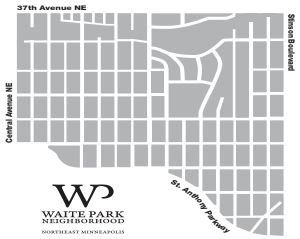Community cooking classes offer ideas for your garden harvest
/An initiative focused on bringing access to fresh produce to every Minneapolis neighborhood is hosting a series of free cooking classes the last Thursday of the month through October.
Edible Boulevards is a currently running a pilot program in the city’s Green Zone neighborhoods in which participants grow food on their boulevards and share the fruit with one another. Minneapolis ordinance doesn’t allow community members to grow food on our boulevards. Participant sites are tested for lead since Green Zone neighborhoods typically experience higher levels of lead in their children’s blood.
Waite Park is not a Green Zone neighborhood, but residents are welcome to attend its cooking classes, which aim to use the harvest from your gardens to create simple and delicious summer and autumn recipes. You’ll learn about the nutrition of the foods used in the recipes each month, and also be able to make that evening’s meal for you and your family.
Appetite for Change will lead the August class, and Kelly Shay from Harmonious World will lead the September and October sessions, which will run form 5:00-6:30 on the last Thursday of the month:
Thursday, August 26 with Appetite for Change: TBD
Thursday, September 30 with Kelly Shay: Vegetable Basil Stir-fry w/ Quinoa and a Side Salad
Thursday, October 28 with Kelly Shay: Cozy Autumn Lentil Stew
Check out the Minneapolis Edible Boulevards Facebook page for recipes and ingredients list. Zoom info below:
Topic: Cooking Class with Appetite for Change
Time: Aug 26, 2021 05:00 PM Central Time (US and Canada)
Aug 26, 2021 05:00-6:30 PM
Sep 30, 2021 05:00-6:30 PM
Oct 28, 2021 05:00-6:30 PM
Register in advance for this meeting:
https://us02web.zoom.us/meeting/register/tZMscOCprz8vGtdw0iHhiRISE1BfEDky87Sv
After registering, you will receive a confirmation email containing information about joining the meeting.
—Michelle Shaw, Edible Boulevards
Waite Park Fall Festival
/More details coming soon!
Join us for two neighborhood meetings about our Equitable Engagement Plan
/You are invited to attend two public meetings to aid the development of Waite Park’s Equitable Engagement Plan. Please come share your thoughts on strategies that promote the engagement of everyone who lives and works in Waite Park; especially engagement in WPCC decision-making by those who have been historically underrepresented.
The Equitable Engagement Plan (EEP) is a new requirement for neighborhood organizations to be recognized by the city and eligible for funding under the city’s Equitable Engagement Fund. More information is available here.
There will be a virtual meeting on Tuesday, Aug. 17 and an in-person meeting on Tuesday, Sept. 28 (either outside at Waite Park or inside the community center), both at 7pm.
Please RSVP for the meeting link and more location details by completing this form.
If you would like to submit suggestions related to the development of the plan or get involved in the development of the EEP beyond the two public meetings, please contact waiteparkcc@gmail.com.
Don't forget to care for your trees during the drought
/During our drought, remember that trees – especially young trees – need watering any time it doesn’t rain an inch in a week. Under the sprinkling restrictions, tree watering is allowed with a dripping hose, bucket or tree watering bag as needed.
Yard and boulevard trees need water
Minneapolis yard and boulevard trees need an inch of water every week all through the summer-fall season. Lack of water can make trees vulnerable to insects and disease and cause permanent damage to young and old trees alike. Trees up to five years old are especially susceptible. The Park Board plants and mulches boulevard trees but relies on residents or businesses nearby to water them.
An effective way to water a tree is to turn on a slow stream of water (just so the hose is weeping) for a few hours. Watering in the evening is most effective since it minimizes evaporation, and trees tend to take most of their water during the night. Watering one tree weekly costs only about $3 for 23 weeks – the entire summer-fall season. For people who lose track of when they last watered a tree, a good way to remember is to water trees on the same day trash is picked up.
Protect our Minneapolis quality of life
Taking care of our trees means protecting our Minneapolis quality of life. Healthy trees are beautiful, increase property values, help improve air quality, reduce greenhouse gases by absorbing carbon dioxide, save energy, keep the city cooler, provide homes for wildlife and help manage stormwater. If you have space in your yard to plant a tree, consider getting one going so it can get a start on providing shade and making a better quality of life in your neighborhood. The larger the tree, the larger the benefits.
For information on tree care and the urban forest, call the Park Board’s Forestry Department at 612-313-7710, email forestry@minneapolisparks.org or visit www.minneapolisparks.org/trees.
—via City of Minneapolis
Even-odd water sprinkling restrictions in effect in response to drought
/The City of Minneapolis has implemented even-odd water sprinkling restrictions until further notice. The city is now included in a drought warning as defined by the Minnesota Department of Natural Resources Drought Action Plan.
The Mississippi River has reliably provided the City of Minneapolis with drinking water for over 150 years. The City assures the public of its continued ability to produce sufficient quantities of high quality water for its residents and wholesale customers. The City’s sprinkling restrictions are in place to help reduce demand on the Mississippi River during the ongoing drought. Other metro cities have similar measures in place.
Sprinkling restrictions
Sprinkling lawns is NOT allowed from noon to 6 p.m. on any day.
On calendar days that are even numbers (examples: July 26 or Aug. 18), the even side of the street CAN sprinkle lawns outside of the noon to 6 p.m. time window. Examples: 1238 Oak St. or 2574 Cedar Ave.
On calendar days that are odd numbers (examples July 27 or Aug. 19), the odd side of the street CAN sprinkle lawns. Examples: 1247 Maple St. or 2561 18th Ave.
—via City of Minneapolis
We went on a scavenger hunt to find every little library in Waite Park
/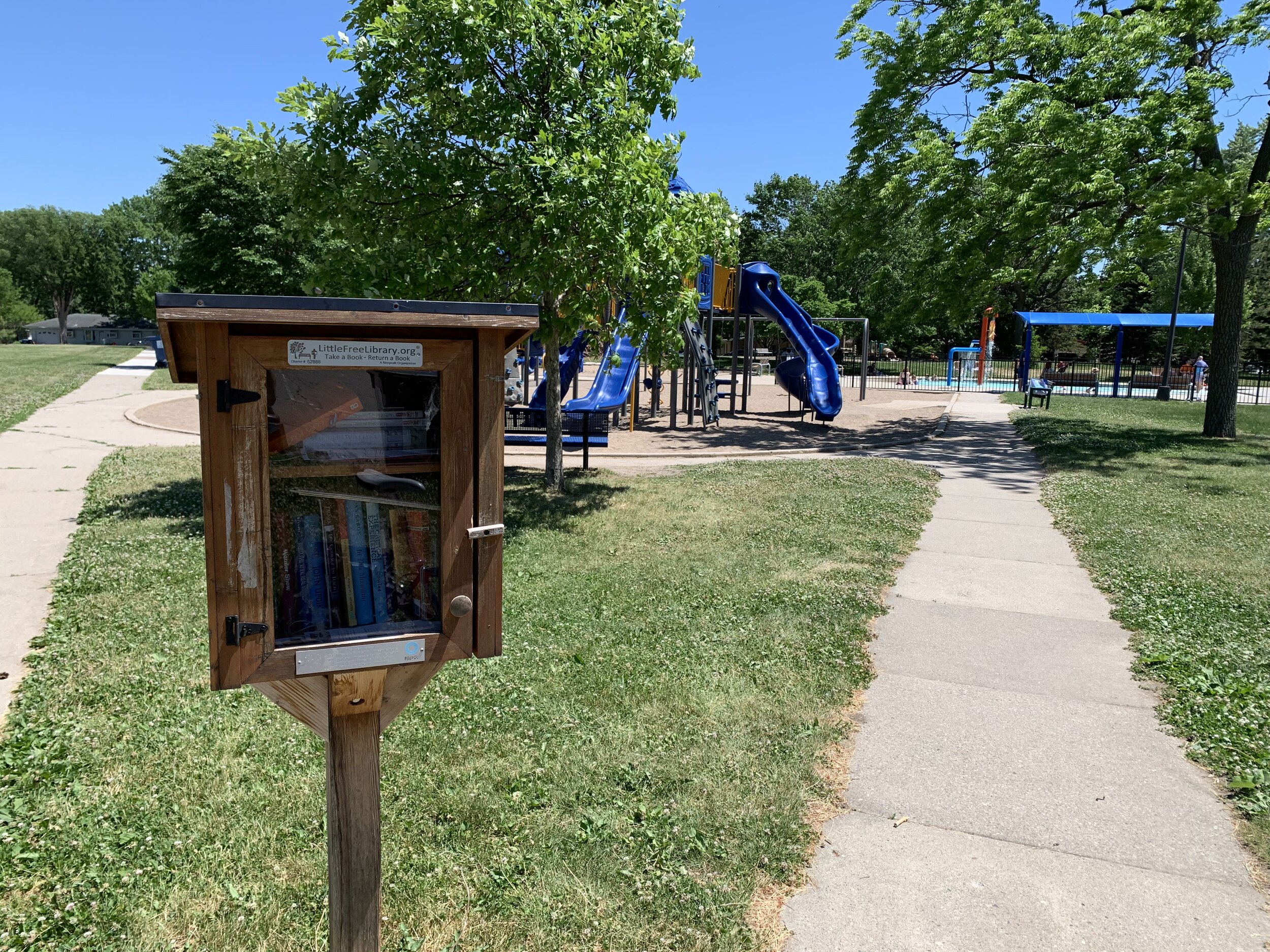
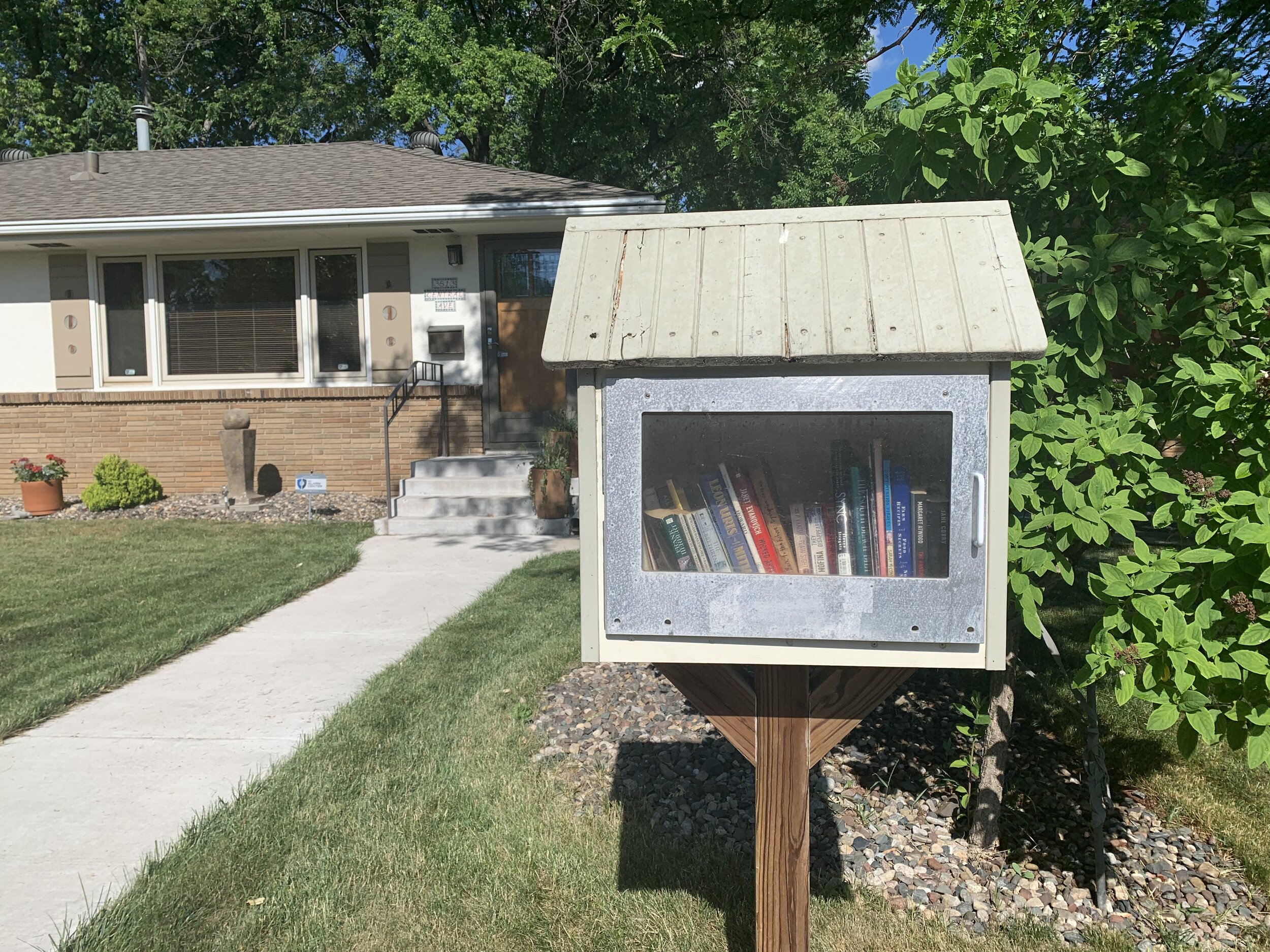
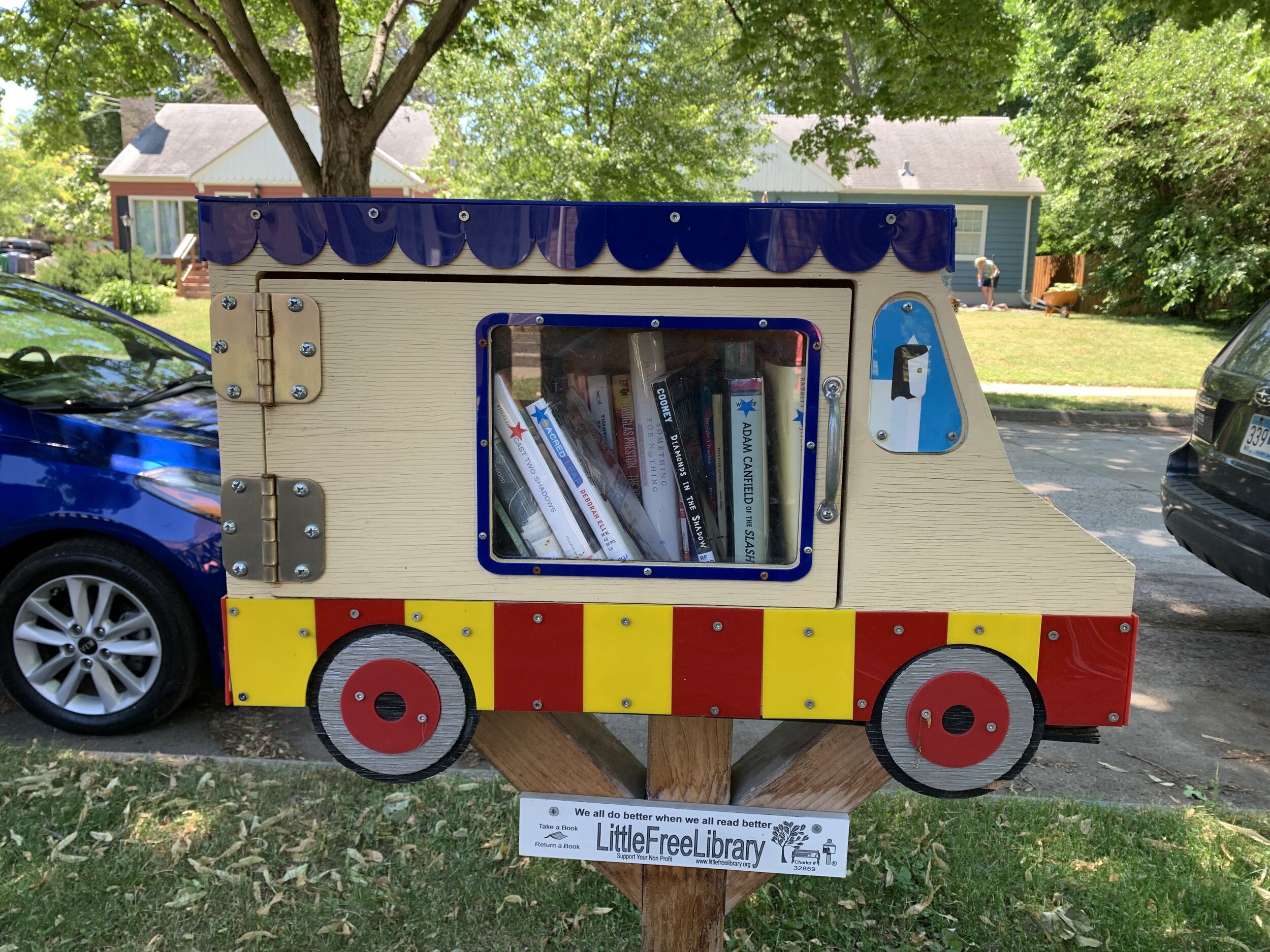
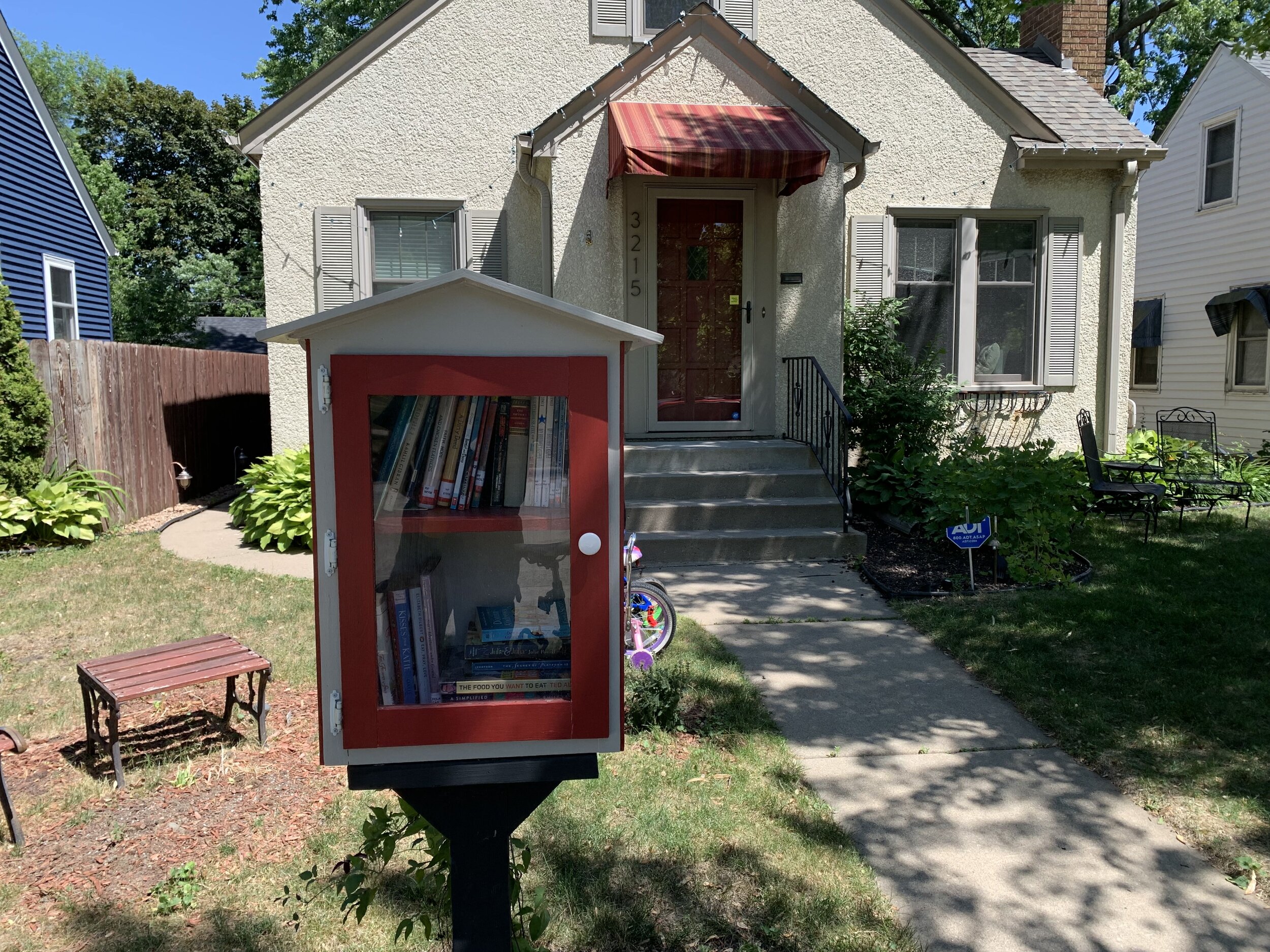
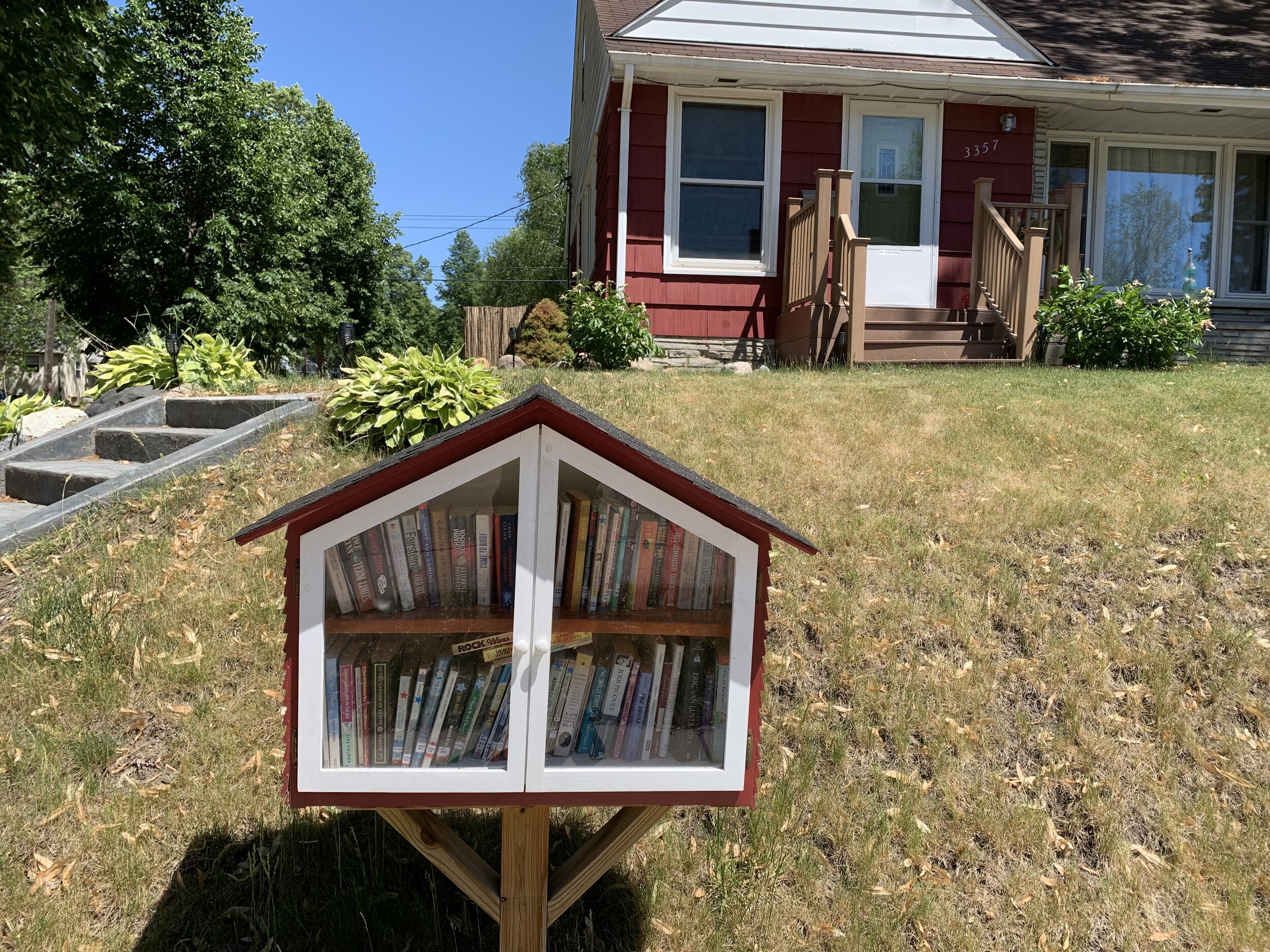
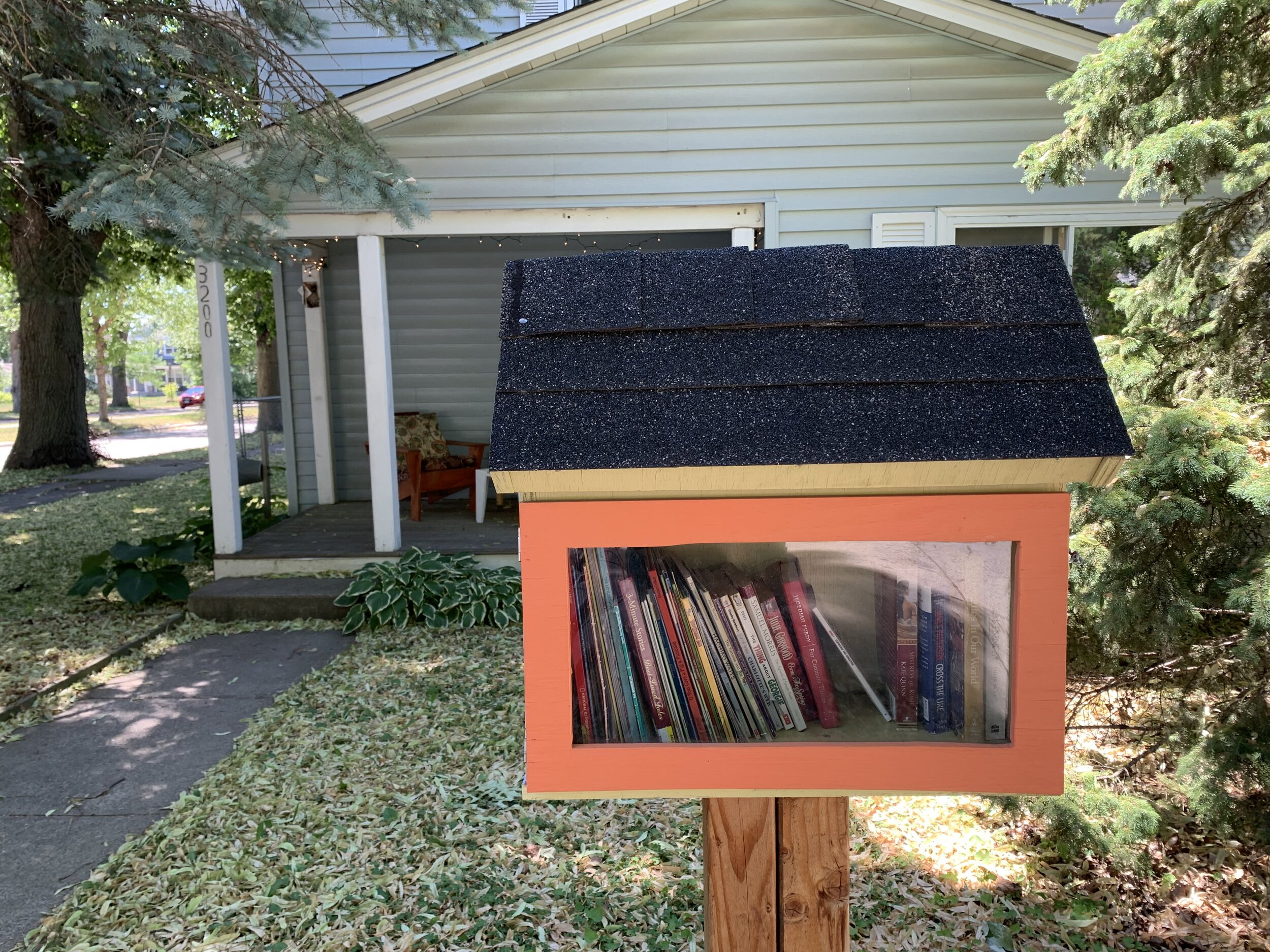
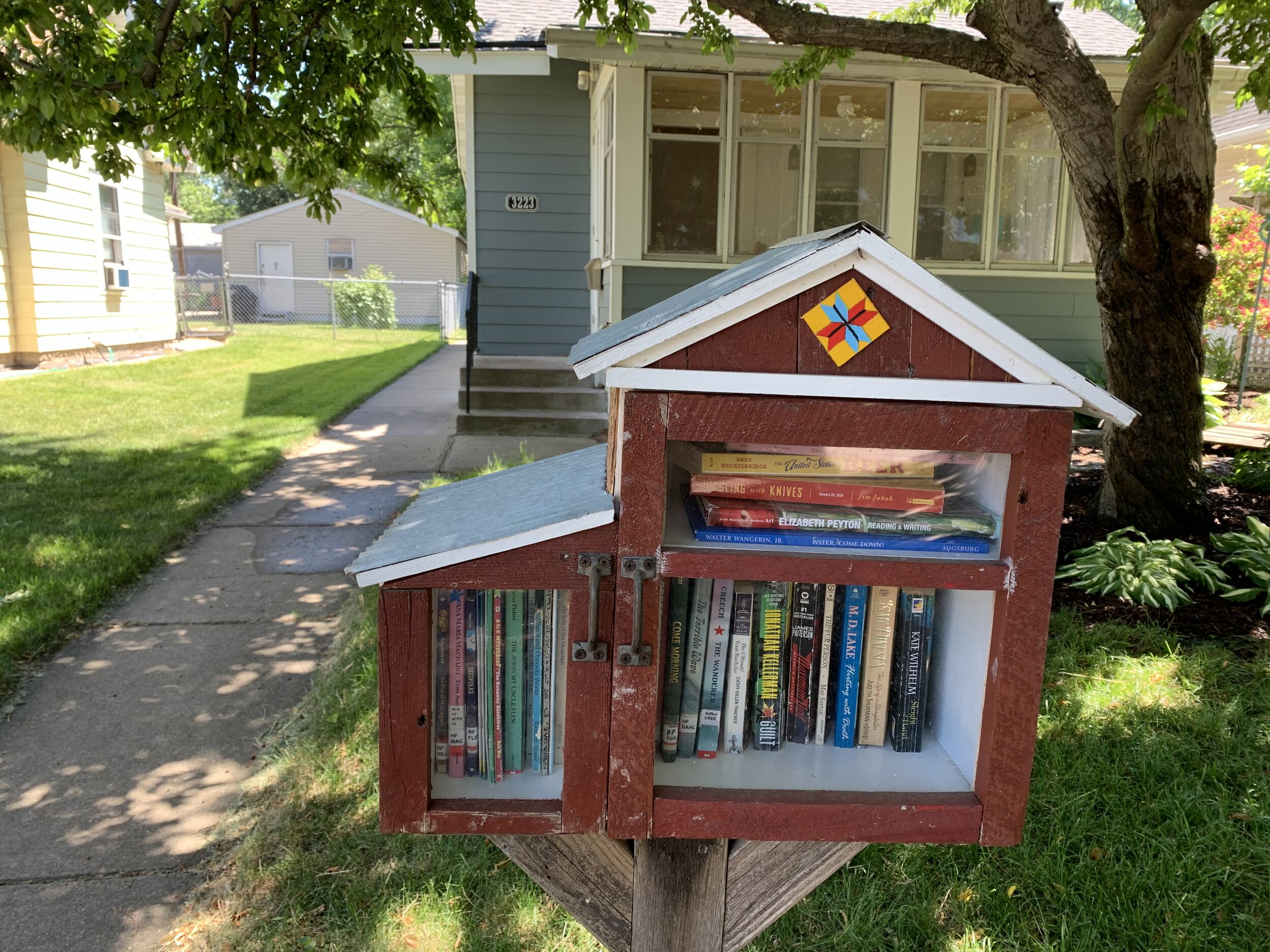
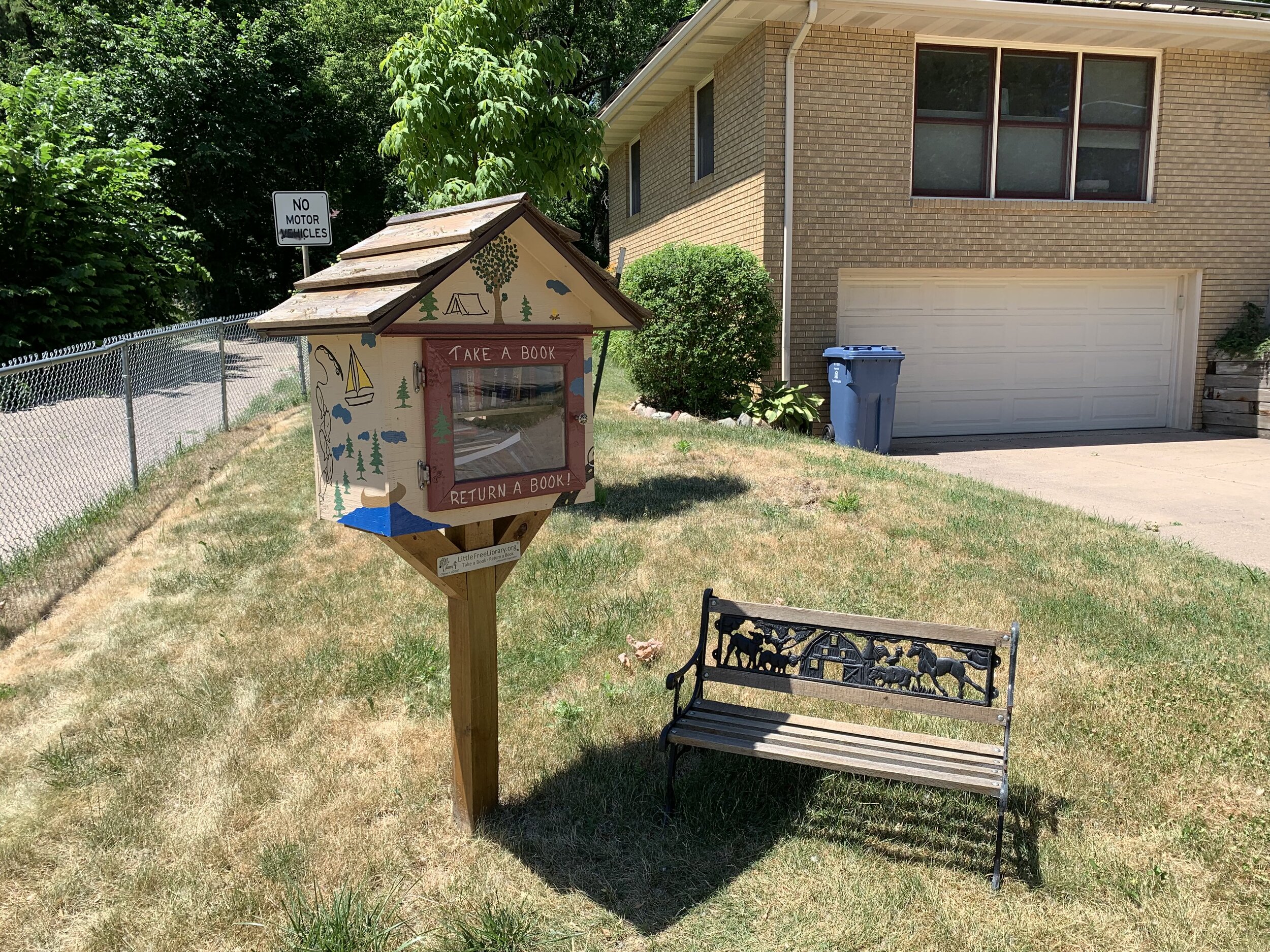
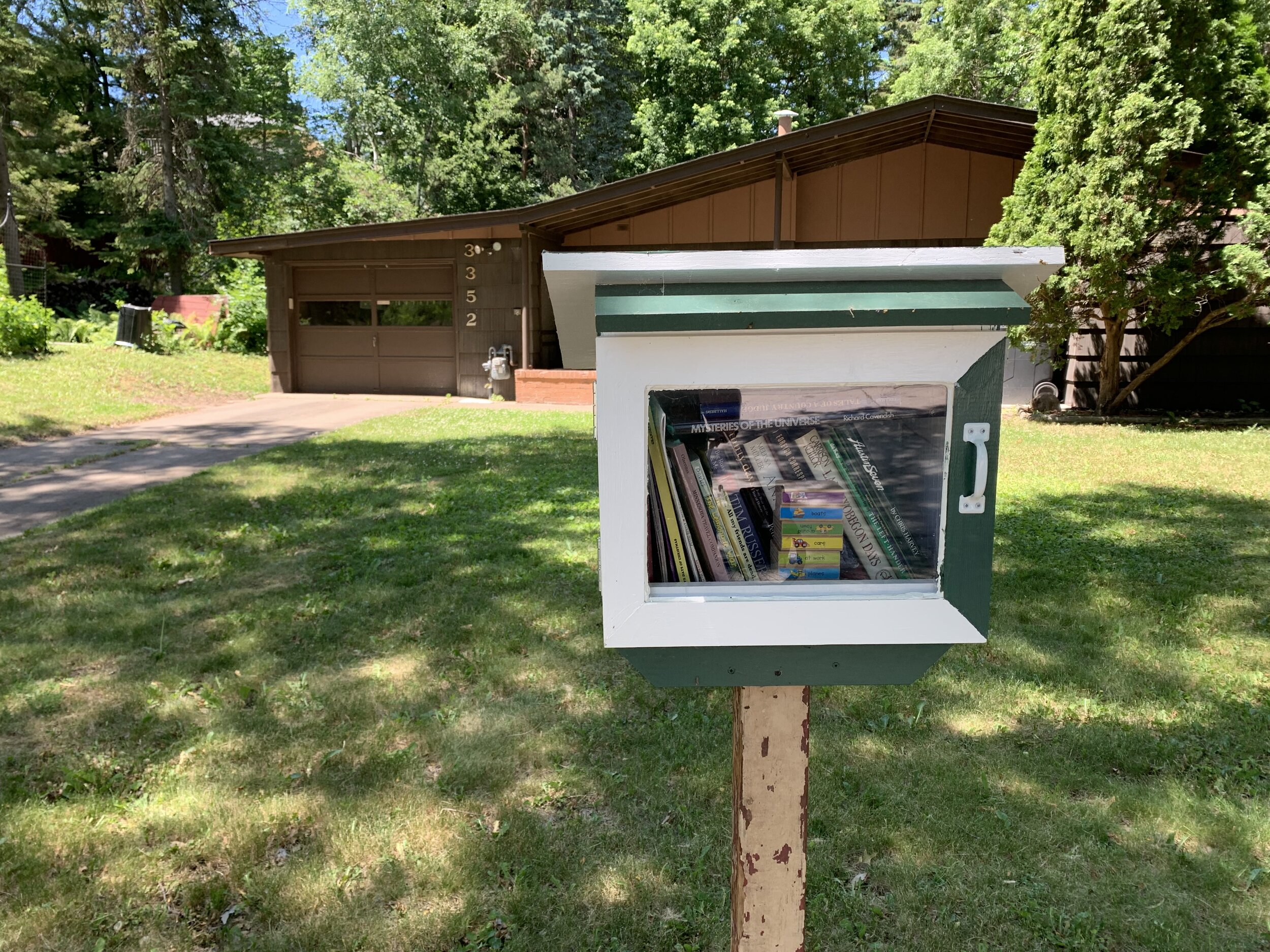
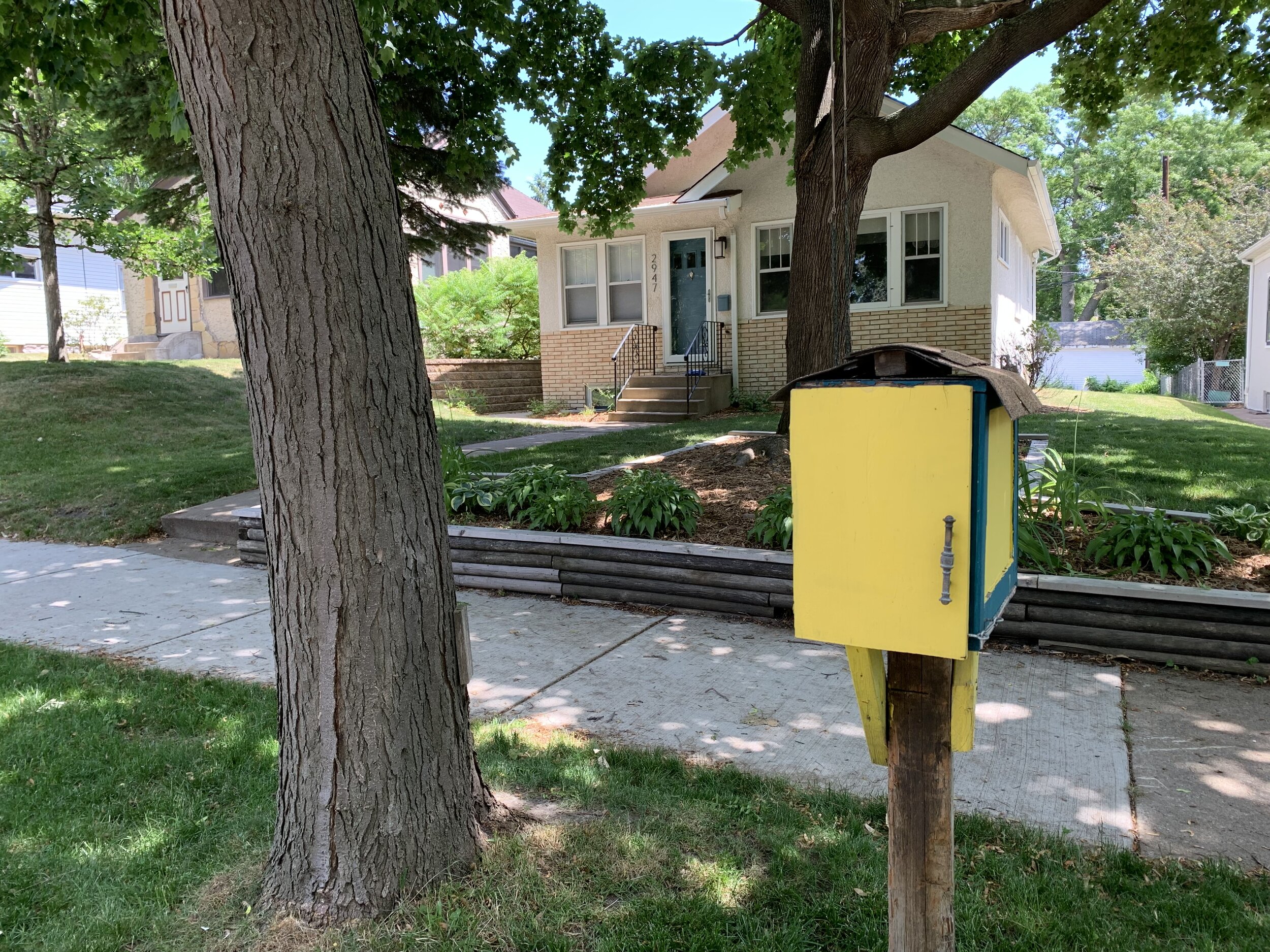
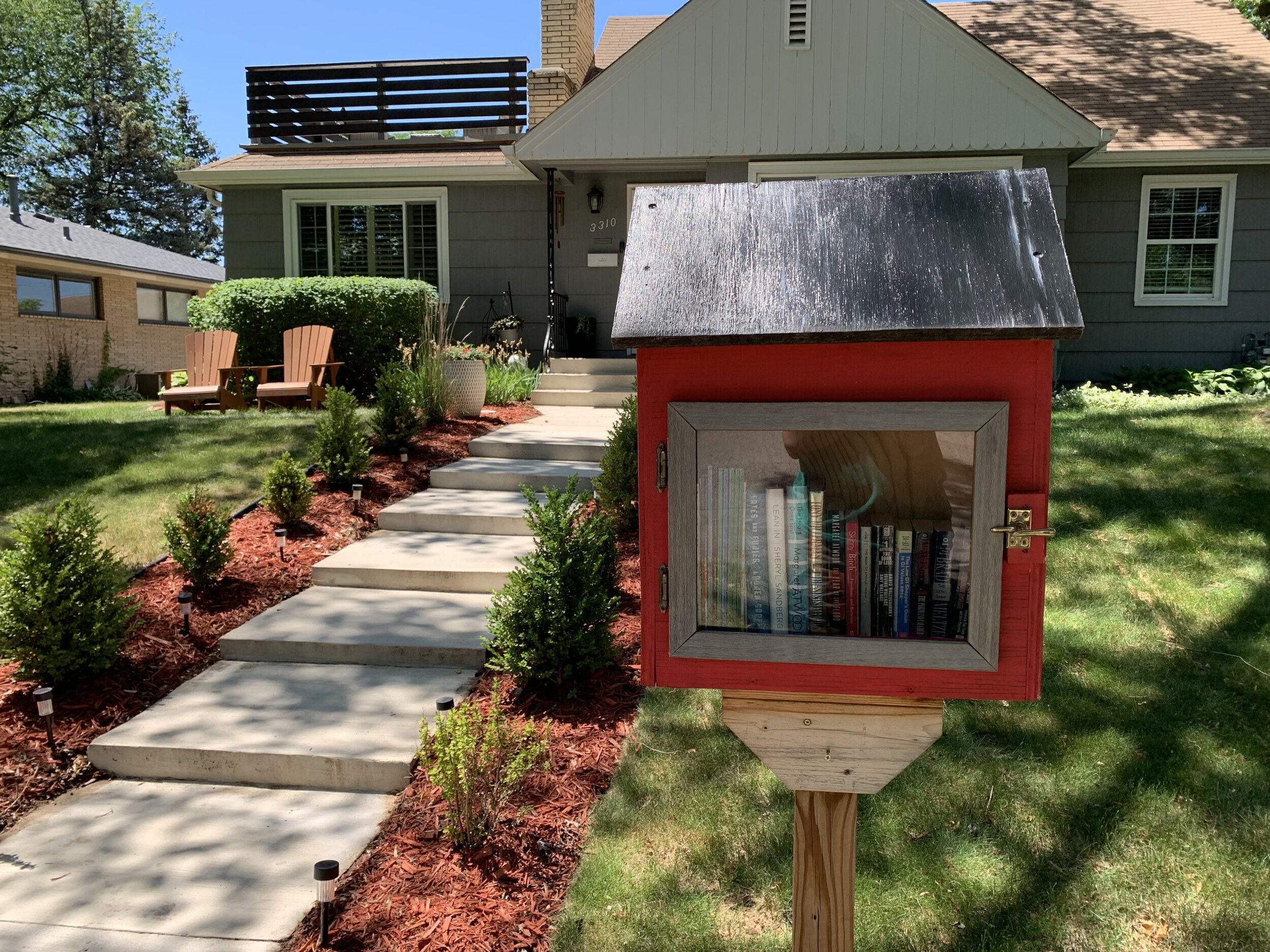
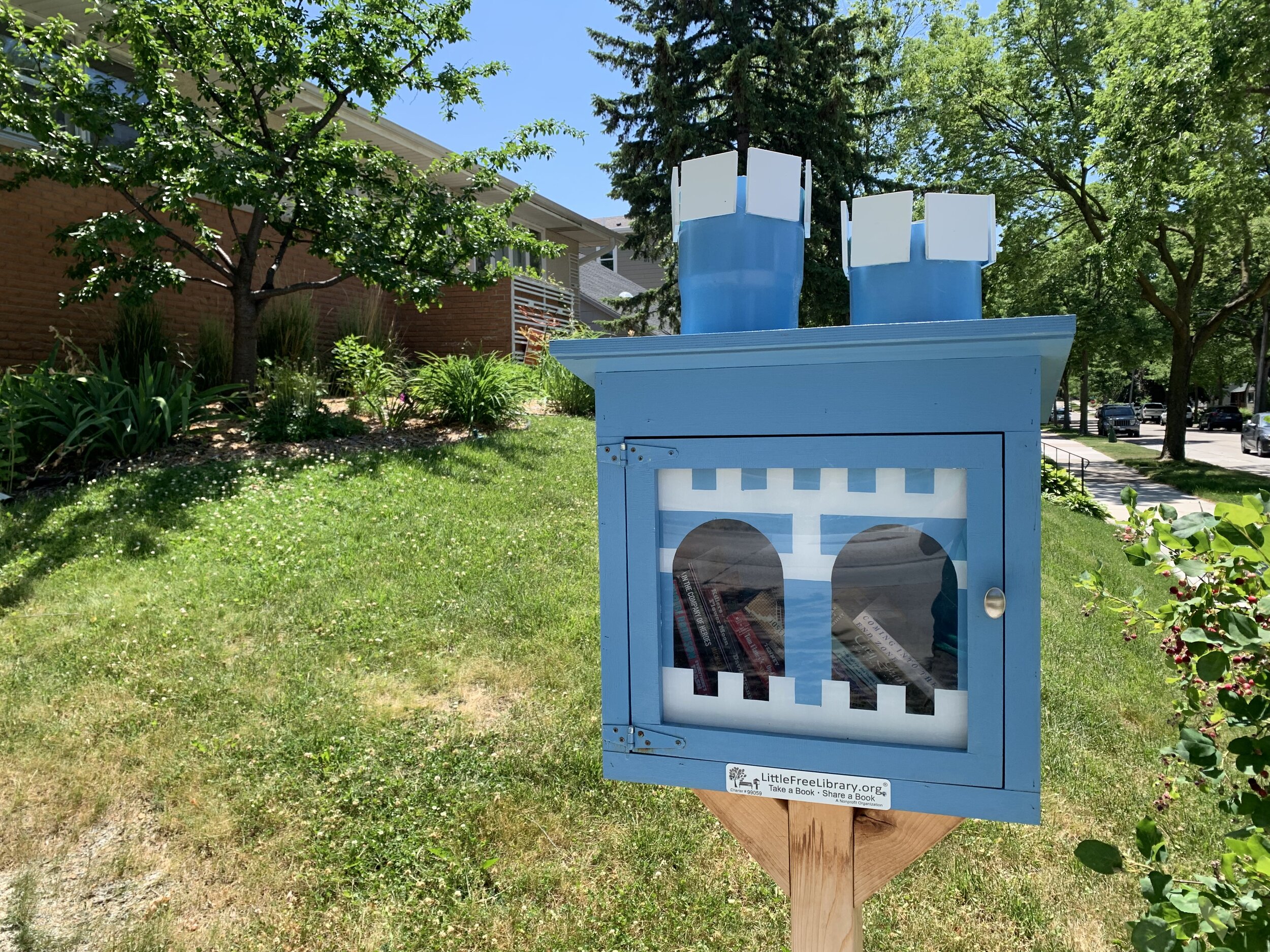
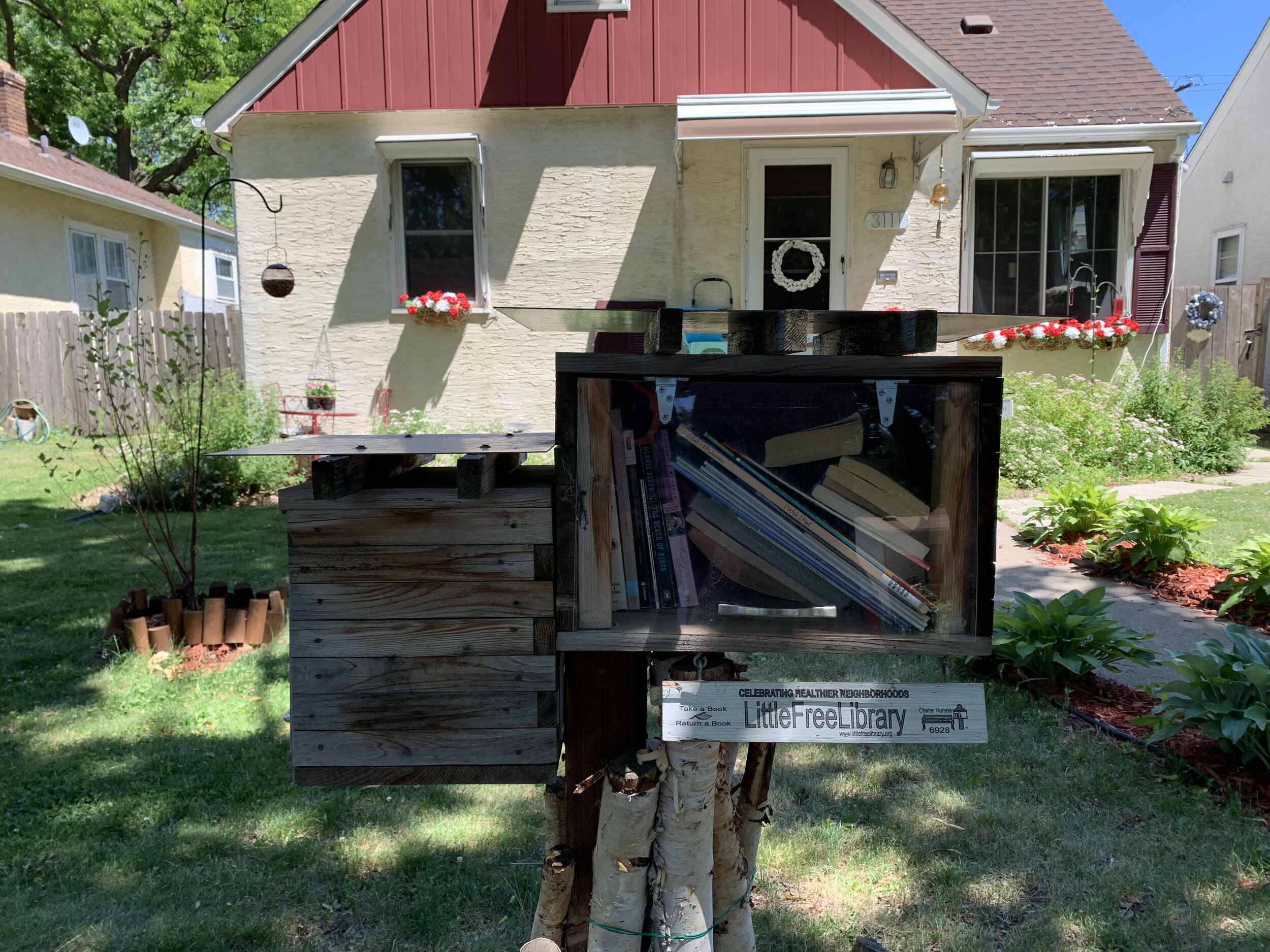
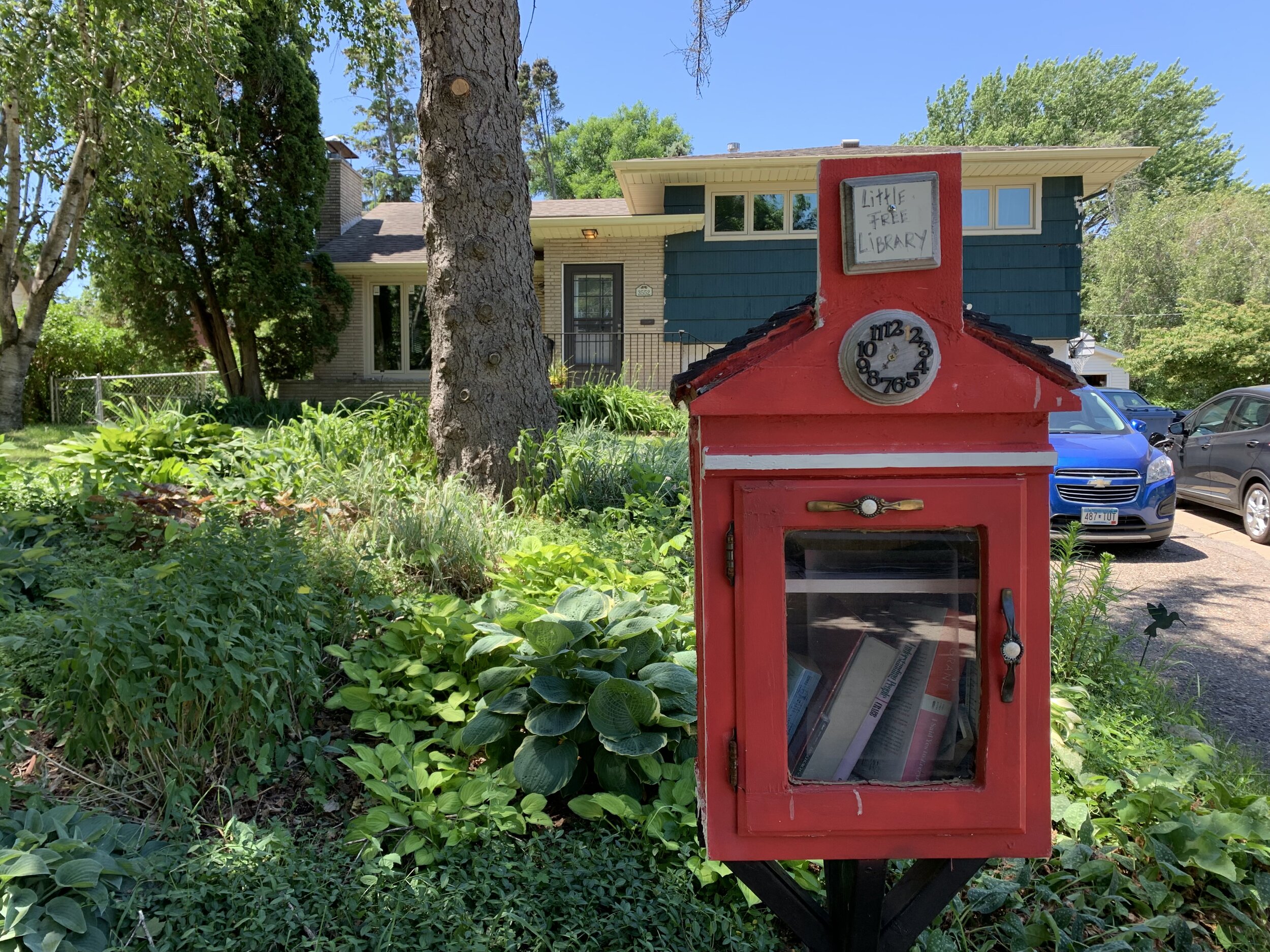
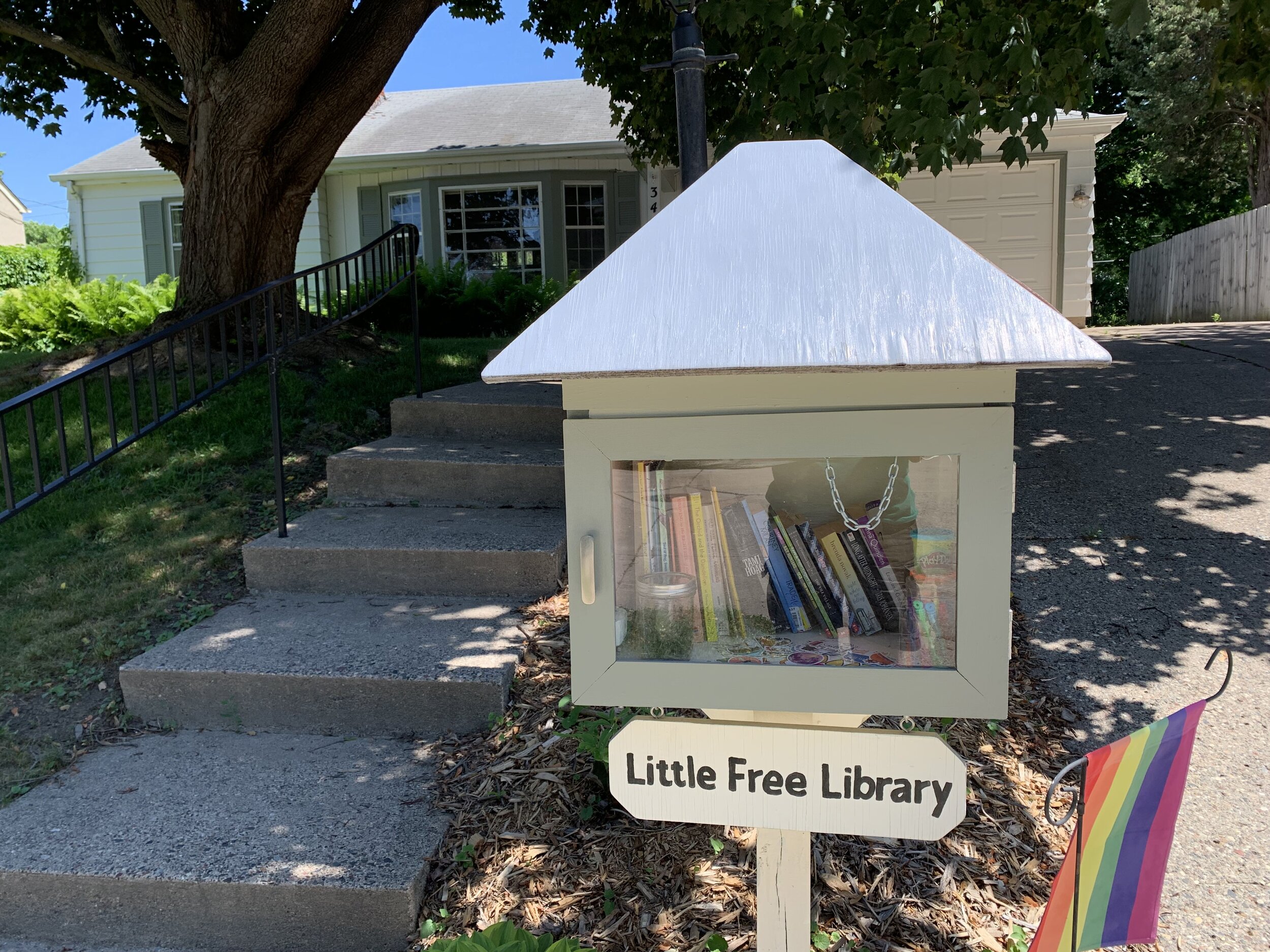
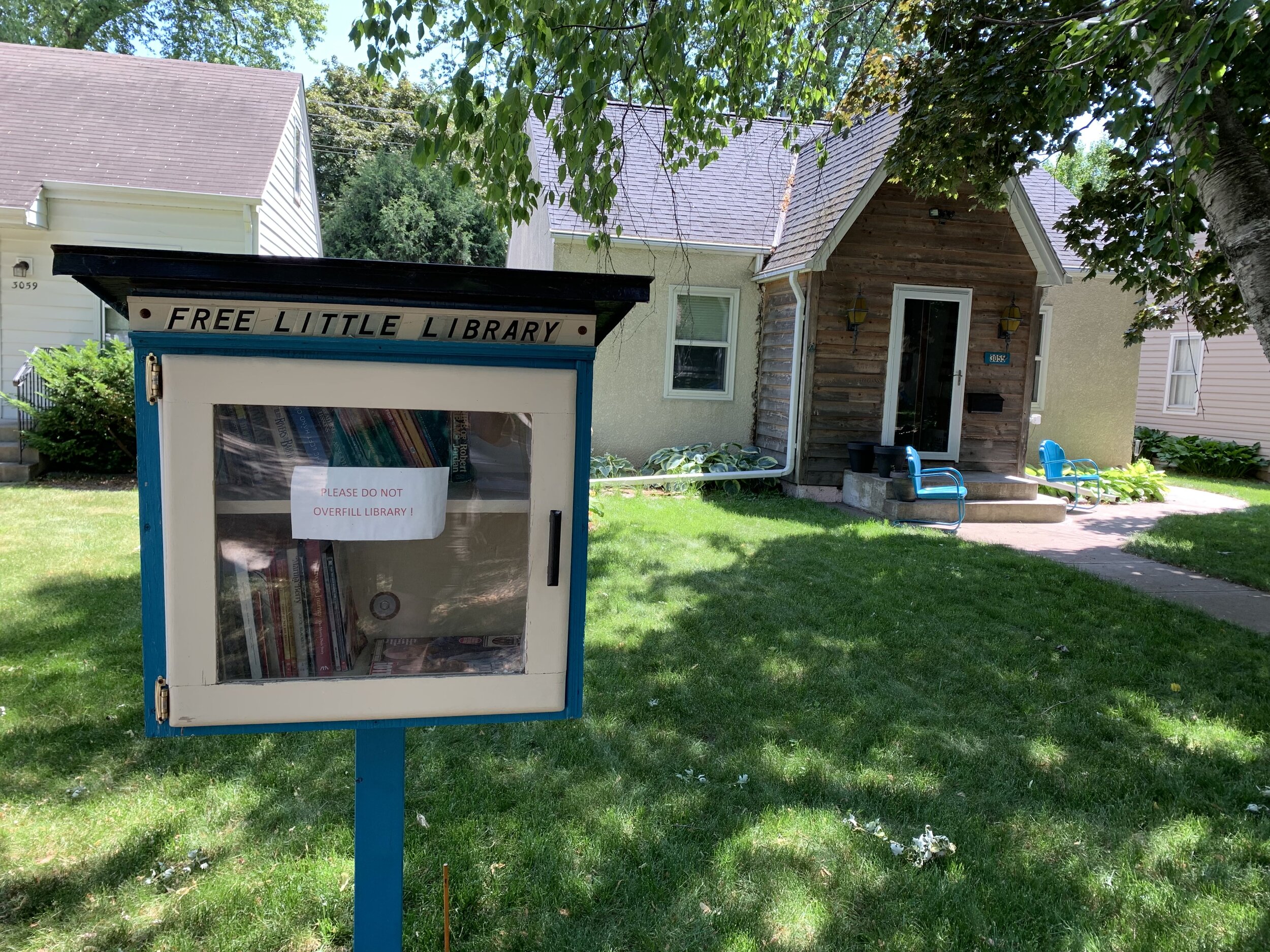
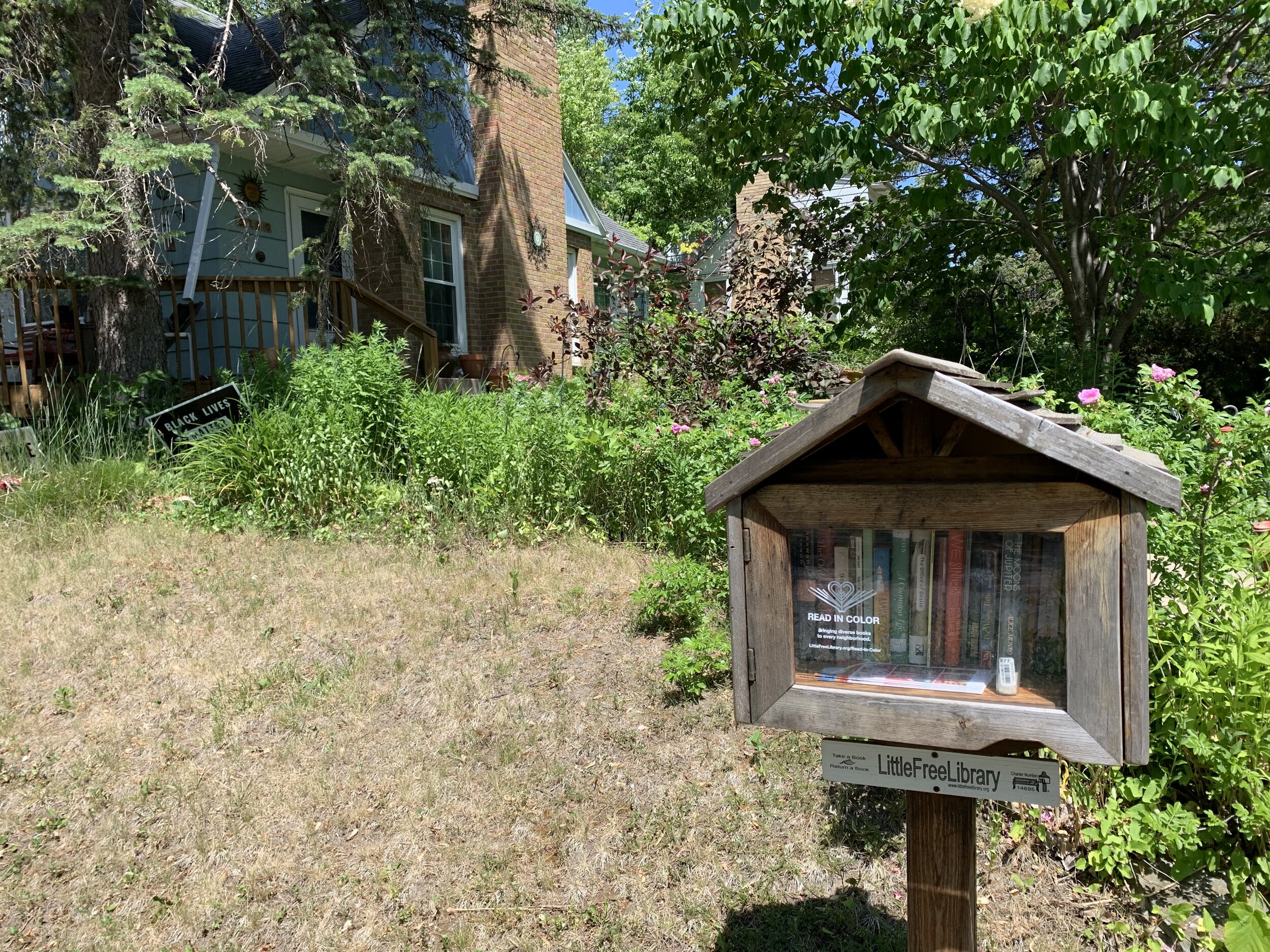
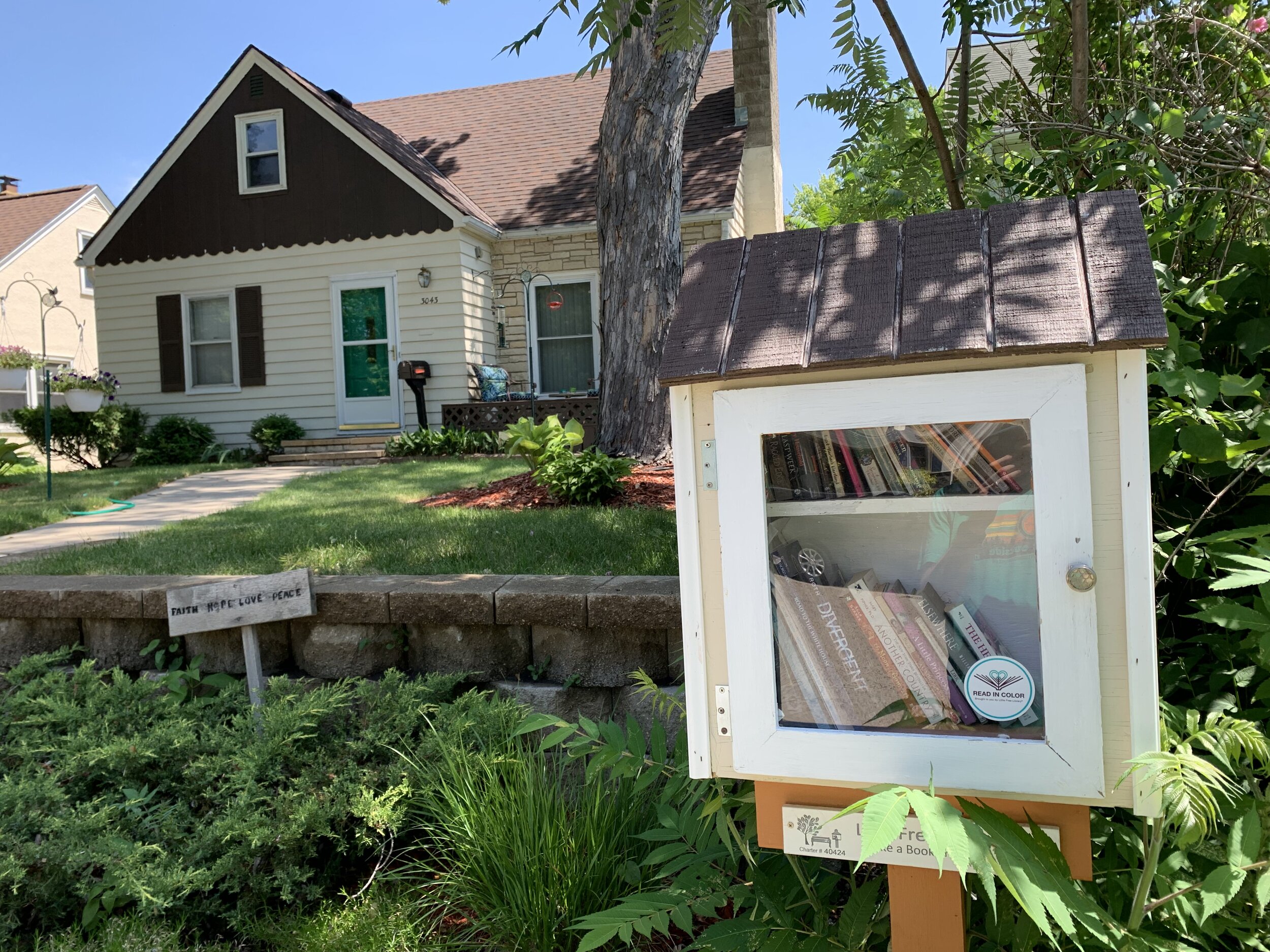

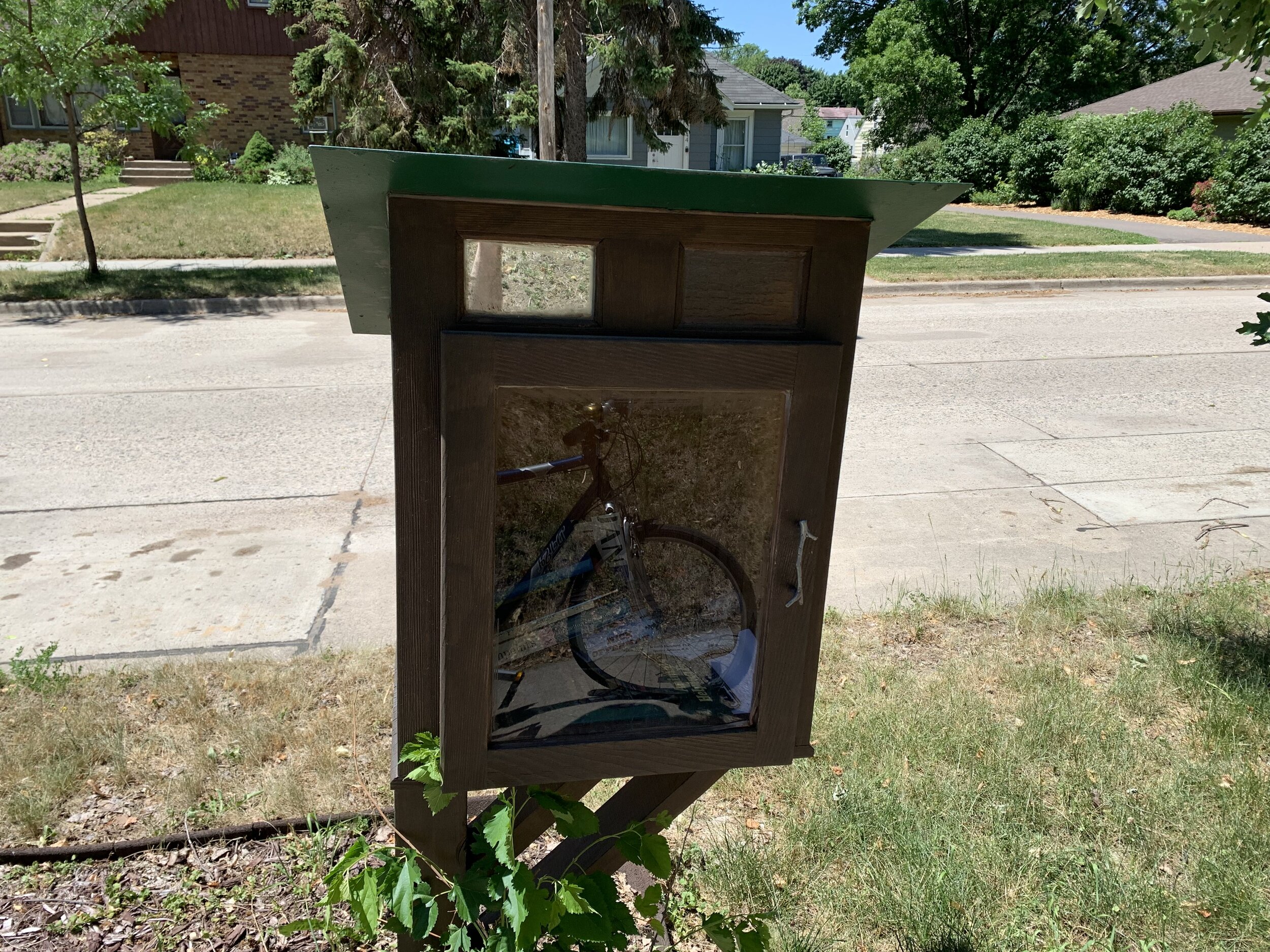
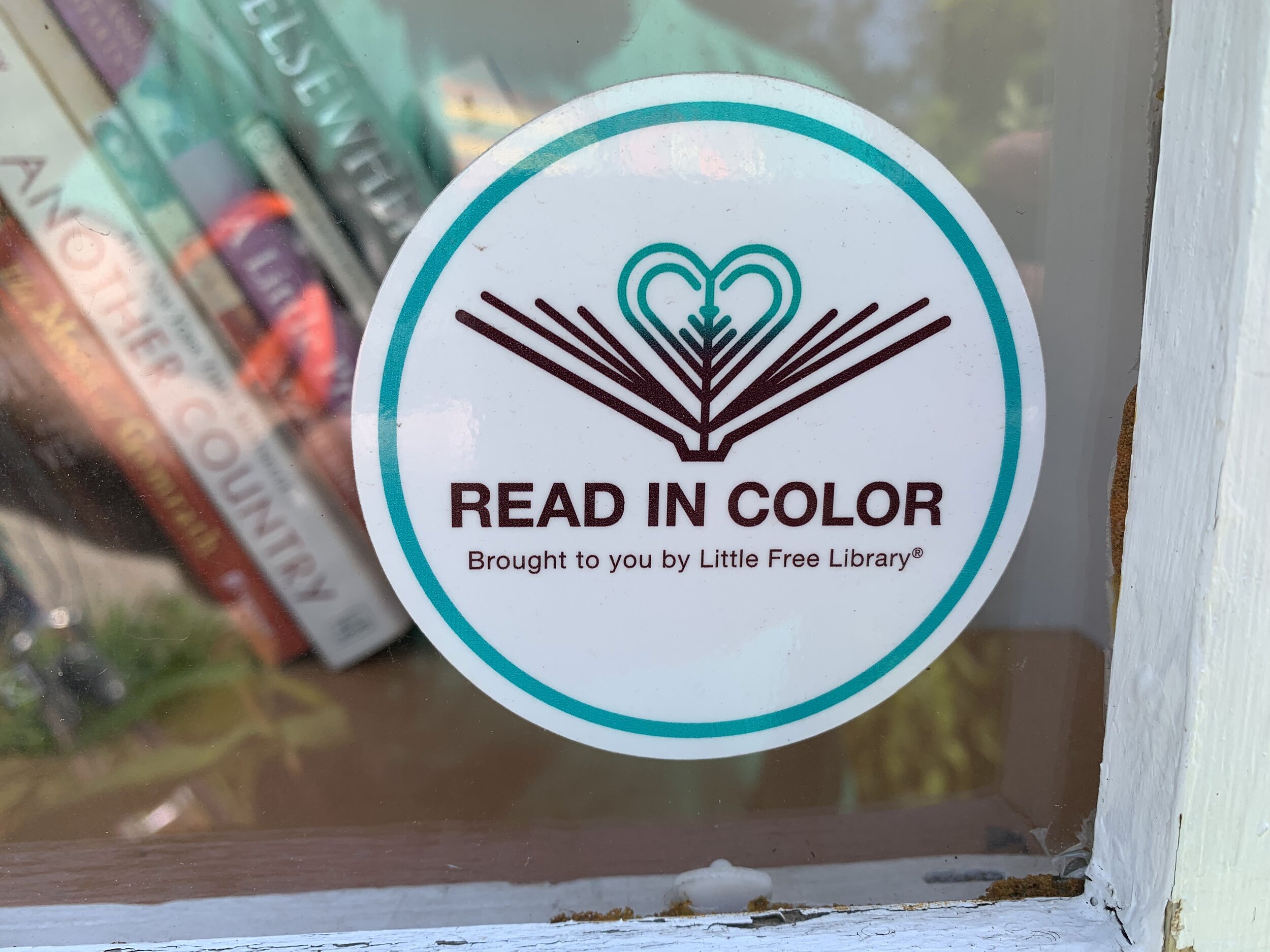
Robert Doze admits he was skeptical when his wife Judith proposed building a Little Free Library — did they really need the clutter in their front yard?
A few years later, the popularity of their curbside box has made him a believer. He’s even thinking about adding a lower level for younger readers.
“It’s been a good conversational thing — for people you know and people you don’t know,” Doze said of their blue-and-white box on McKinley Street.
The Dozes are part of a global movement that started a little over a decade ago in Hudson, Wisconsin. Todd Bol built the first book-sharing cubby, shaped like a one-room schoolhouse, and put it on a post in his front yard.
Little Free Library incorporated as a nonprofit in 2010 and now boasts more than 100,000 registered libraries in more than 100 countries worldwide, with a mission of building community, inspiring readers, and expanding book access.
In the Waite Park neighborhood, curious readers can find at least 20 of the boxes, not counting the similar ones that have sprung up to share food or art supplies. The libraries’ contents range from cookbooks and religious texts to mass market paperbacks and critically acclaimed hardcovers.
“It’s been fun to see what shows up,” said Elizabeth Zaccardi, who inherited a rustic-themed Little Free Library when she and her husband Tony bought their home on the 3100 block of Lincoln Street. On a recent weekend, the lopsided pile of books in their box included children’s picture books, parenting guides, the second Chronicles of Narnia book, and a David Sedaris collection.
“It’s been fun to see what shows up.”
The libraries’ designs are as varied as the media they contain. Greg Flanagan said it was his 7-year-old daughter’s idea to make their library on the corner of 31st and Hayes look like King Friday XIII’s castle from Mister Rogers' Neighborhood.
“The design is fun. If people notice what it is, they comment,” Flanagan said.
He and his wife collect a lot of books and tend to share more than they take, but their daughter finds a steady stream of children’s books to read and return. And for all three of them it’s been a way to meet from their front yard.
“I think it adds to getting to know your neighbors,” Flanagan said.
The small spaces have evolved to take on new uses and missions in recent years. At the start of the coronavirus pandemic last spring, for example, some began to use the boxes as a place to share non-perishable food.
Michelle Filkins has had her library on the corner of 32nd and Cleveland for about seven years. She recently began participating in a Little Free Library program called Read in Color, a new initiative to bring diverse books to its book-sharing boxes. With support from the nonprofit, Filkins is working to stock her library with diverse authors, but the community is contributing as well.
“I’ve been happy to find that not only are people putting in engineering textbooks from 1980 or whatever they found in the garage in a musty box, but they’re also putting in new titles, often by diverse authors,” Filkins said. “It suggests to me that people are buying into the idea that we really should try to read outside of our own lived experience.”
—Photos and words by Dan Haugen
Raising Anti-Racists: An Interactive Conversation with Ruth Chan
/Join us June 7 for a special event of the Waite Park Anti-Racism conversation series featuring acclaimed artist and illustrator Ruth Chan.
Ruth will discuss the creation of her new children's book Thank You, Neighbor (as well as the real life neighbors that inspired the book!)
She will read the book and lead a discussion about the ways that books can help parents and families cultivate the values of inclusion and promote anti-racism.
This event is free, but registration is required and limited on a first come, first serve basis at tinyurl.com/wpars
How we can help you pay for home improvements this year
/Waite Park neighborhood residents planning home improvements this summer may qualify for financing through a new zero-interest loan program.
The Waite Park Community Council approved the program last year as a way to encourage investment in the neighborhood and its housing stock.
A second program, also approved by the neighborhood board last year, offers forgivable, no-interest loans to cover the cost of emergency repairs.
“We can’t wait for folks to start taking advantage of these great programs to help maintain safe, sustainable, and high-quality housing in our neighborhood,” said Hayley Nemmers, chair of the community council’s housing committee.
Home Improvement Loans
The home improvement program offers loans of up to $15,000 for most permanent exterior and interior improvements, including:
Interior remodeling
Windows/doors
Solar panels
Insulation
HVAC, water heaters, geothermal
Roofing
Painting/siding
Correction of code violations
Accessibility improvements
Decks, porches, retaining walls
Garage repairs or construction
Driveways, sidewalks, steps
Health measures including asbestos, lead abatement, radon, carbon monoxide, and/or mold removal
Fences, trees, shrubs and other non-permanent landscaping improvements are not eligible unless part of a larger project or needed to address a potential structural threat.
The program is limited to owner-occupied properties of 1-4 units within the Waite Park neighborhood. Income limit is 80% of Area Median Income.
More details and an online application for the home improvement loans are available here or by calling the Center for Energy and Environment at 612-335-5884.
Emergency Deferred Program
The emergency deferred program offers no-interest loans up to $5,000 for repairs to address conditions that make a home dangerous or uninhabitable. Examples include sewage back ups, furnace failures in extreme cold months, or major holes in a roof or window cavity.
The emergency loans will be 100% forgiven if the owner continues to own and occupy the property for 5 years from the loan closing date. There is no maximum income limit for the emergency deferred program.
More details and an online application for the emergency deferred loans are available here or by calling the Center for Energy and Environment at 612-335-5884.
Tell us what you think: Should we host a fall festival this year?
/After a pandemic-canceled year, the Waite Park Community Council is considering whether to revive our annual fall festival this year. Please help us by filling out a short survey. Share your thoughts and ideas, and let us know whether you’d be interested in volunteering to help make it happen.









